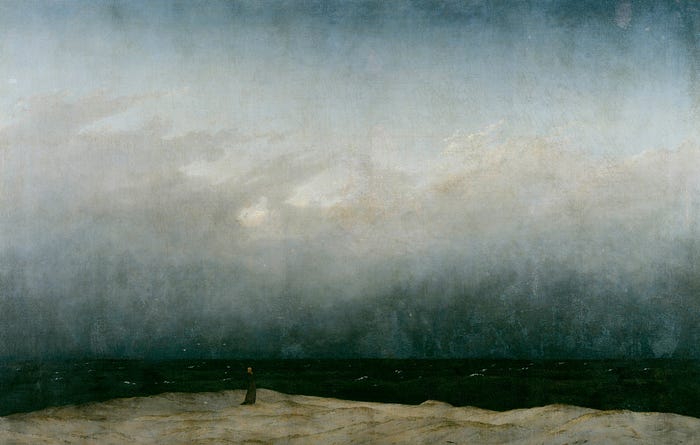Exploring the Nature of Consciousness and the Soul
Written on
Chapter 1: The Argument for the Soul
In the discourse surrounding consciousness, the question of existence takes center stage.

Phillip Goff, in his book Galileo's Error, advocates for panpsychism, a viewpoint that posits consciousness as a fundamental aspect of matter. Goff describes panpsychism as the idea that even the smallest particles, such as electrons, possess some degree of consciousness. While I have critiqued Goff's reasoning elsewhere, it is vital to address his belief that panpsychism warrants serious consideration in both philosophical and scientific discussions.
Goff contends that science lacks insight into the intrinsic nature of reality. In essence, while scientific inquiry reveals much about the behavior of particles and forces, it falls short of explaining what these entities actually are. He states:
> "Physical science confines itself to the behavior of entities like particles, fields, and spacetime, without addressing their intrinsic natures... We often assume that discovering water as H2O uncovers its true essence. However, when we delve deeper into what hydrogen or oxygen actually are, we find that physics fails to reveal their intrinsic properties. Thus, we remain ignorant of what water truly is."
According to Goff, consciousness fills this gap by serving as the intrinsic nature of matter. However, his claim that consciousness is inherent at the atomic level leads to significant complications. He acknowledges the "combination problem," which questions how individual atomic consciousness contributes to the unified experience of human consciousness. Moreover, one must ask: what could an atom be conscious of? How does this relate to our multifaceted experiences of consciousness?
Section 1.1: Materialism and Consciousness
Philosophers have long grappled with questions of existence and identity. The core inquiry of "what is a thing?" is foundational to ontology, a field of philosophy that examines the nature of being. In contemporary discourse, however, this question is often overshadowed by materialism and scientism, which assert that science can answer all significant questions about reality.
This perspective presents challenges, particularly regarding consciousness. Some, like cognitive scientist Daniel Dennett, outright deny the existence of consciousness, labeling the "hard problem" as an outdated notion of vitalism, referring to consciousness as merely an illusion.
Similarly, the issue of selfhood arises, with materialism aligning with certain philosophical traditions that assert the non-existence of the self. Sam Harris, a prominent advocate for atheism, describes the self as an illusion, arguing:
> "The feeling of being a subject, a center of experience, is misleading. There's no anatomical location in the brain for an ego; everything we feel is produced by various processes that can occur independently. We are, in essence, a dynamic system without a constant, singular self."
Harris suggests that through meditation, individuals can experience a dissolution of ego, merging with experience itself. Yet this claim raises questions: even in moments of selflessness, consciousness remains a cohesive experience, necessitating a perceiver who is aware of the experience.
Subsection 1.1.1: The Challenges of Consciousness
In The Case for the Soul, the discussion pivots around the intrinsic nature of consciousness, challenging Goff's assertion of panpsychism. If consciousness is indeed a fundamental property of matter, we must consider: who experiences consciousness at the atomic level?
Conversely, Harris's view, which reduces consciousness to a byproduct of brain processes, generates further confusion. If consciousness is merely an epiphenomenon, how does it influence brain systems, and what evolutionary function does it serve?
Yet, the brain's ability to reflect on consciousness presents a logical flaw in Harris's argument. If consciousness is merely an illusion, how can the brain engage in introspection? This leads to the conclusion that consciousness embodies something beyond the purely physical.
Section 1.2: The Irreducible Nature of Consciousness
Regardless of how we define the self or ego, consciousness itself remains an irreducible experience. Even if we diminish aspects of our identity, there is an undeniable quality to consciousness that persists.
This challenges Goff's panpsychism. If consciousness exists at the smallest levels, what do these particles experience? Conversely, Harris's assertion that consciousness is merely an overlay on brain processes prompts deeper inquiry: Why does consciousness exist? What connection does it have to agency?
Chapter 2: The Soul as the Essence of Self
To reconcile these perspectives, one might consider that the singular experience of consciousness constitutes our intrinsic nature. If Goff's premise holds that consciousness is fundamental, then perhaps our selfhood reflects this intrinsic essence—a nature that some might refer to as the soul.
Religious traditions often connect this essence to the divine. In Hindu philosophy, the concept of atman aligns with the ultimate reality, brahman. Similarly, biblical texts emphasize the significance of the soul and its eternal nature.
This exploration of the self in modern contexts reveals a longing for deeper understanding. Amidst the distractions of contemporary life, there is a growing interest in practices like meditation and yoga, which aim to unveil one's true self.
The discourse surrounding the soul and consciousness invites profound reflection on our existence. As we navigate these complex inquiries, we are reminded of the fundamental truth of our being: we exist, and our quest for understanding this existence lies at the heart of both philosophical and spiritual exploration.